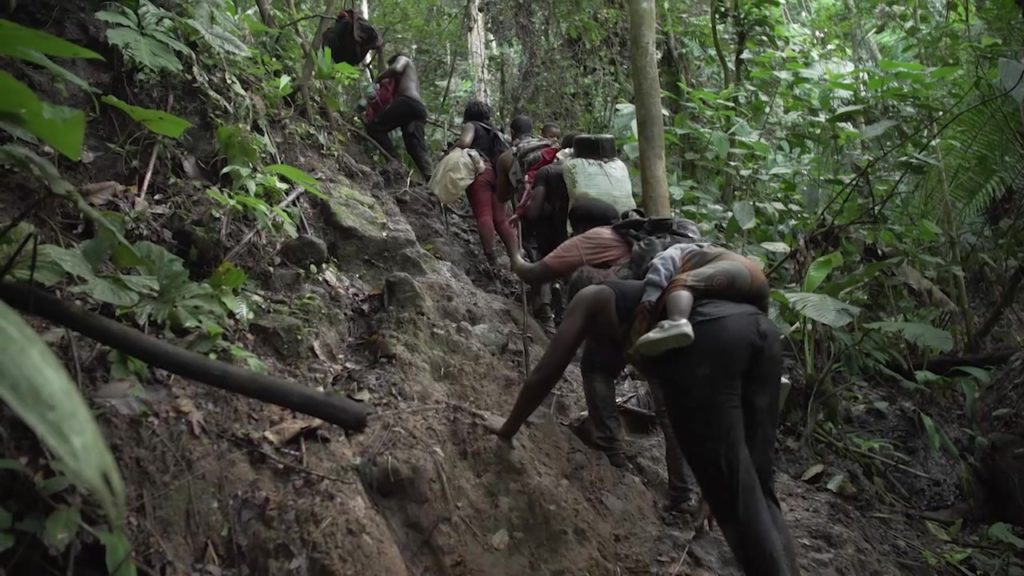Nadja Drost:
Sure.
So, in each group that we followed — and these were groups from Haiti, from Bangladesh, from Pakistan, and from Cameroon — pretty much all of them spent many months in ICE detention. And some of them were deported.
Many of them ended up having to wait about a year to get work permits. Some of them are still in that limbo. So it’s very difficult for many of them to basically sustain themselves in the U.S. right now, especially having arrived during the pandemic with lockdowns.
We followed a group of Cameroonians. And I think that some viewers might remember George, who was a Cameroonian man who was severely injured. He had sprained his ankle. And his group had to basically leave him behind in the jungle.
And by a small miracle, George managed to literally crawl his way through the jungle alone without food for two weeks. I’m happy to report that George now lives in Maryland.
I will also mention a remarkable woman, Sandra, who was also a part of this Cameroonian group. Sandra spent eight months in ICE detention. She was transferred between facilities. She was shackled and dressed in a prisoner’s uniform, actually.
When she was finally released, she was able to reunite with her fiance in Texas. And, meanwhile, she’s trying to create a new life here in the United States and has a newborn baby girl who is 3 weeks old.













































